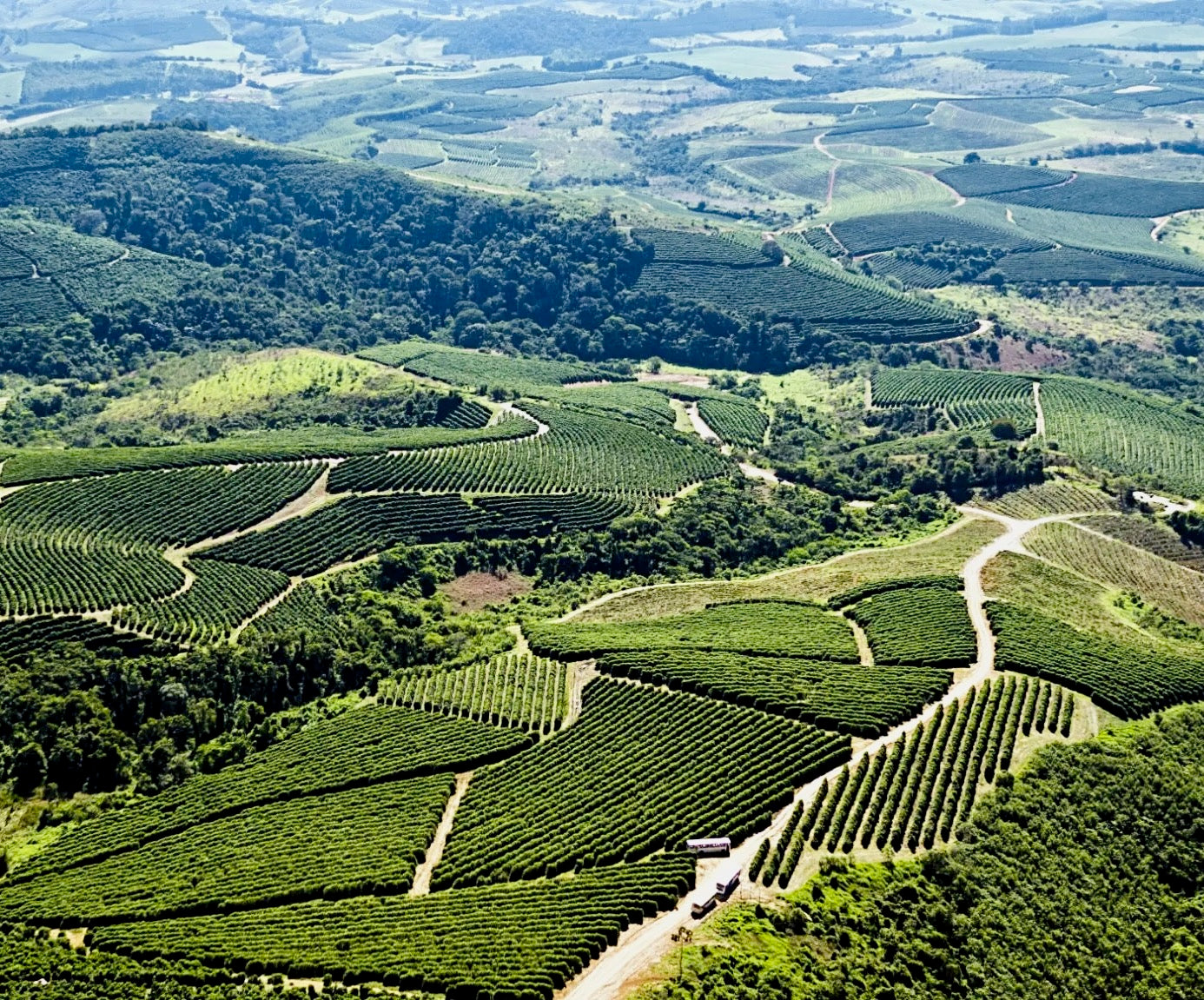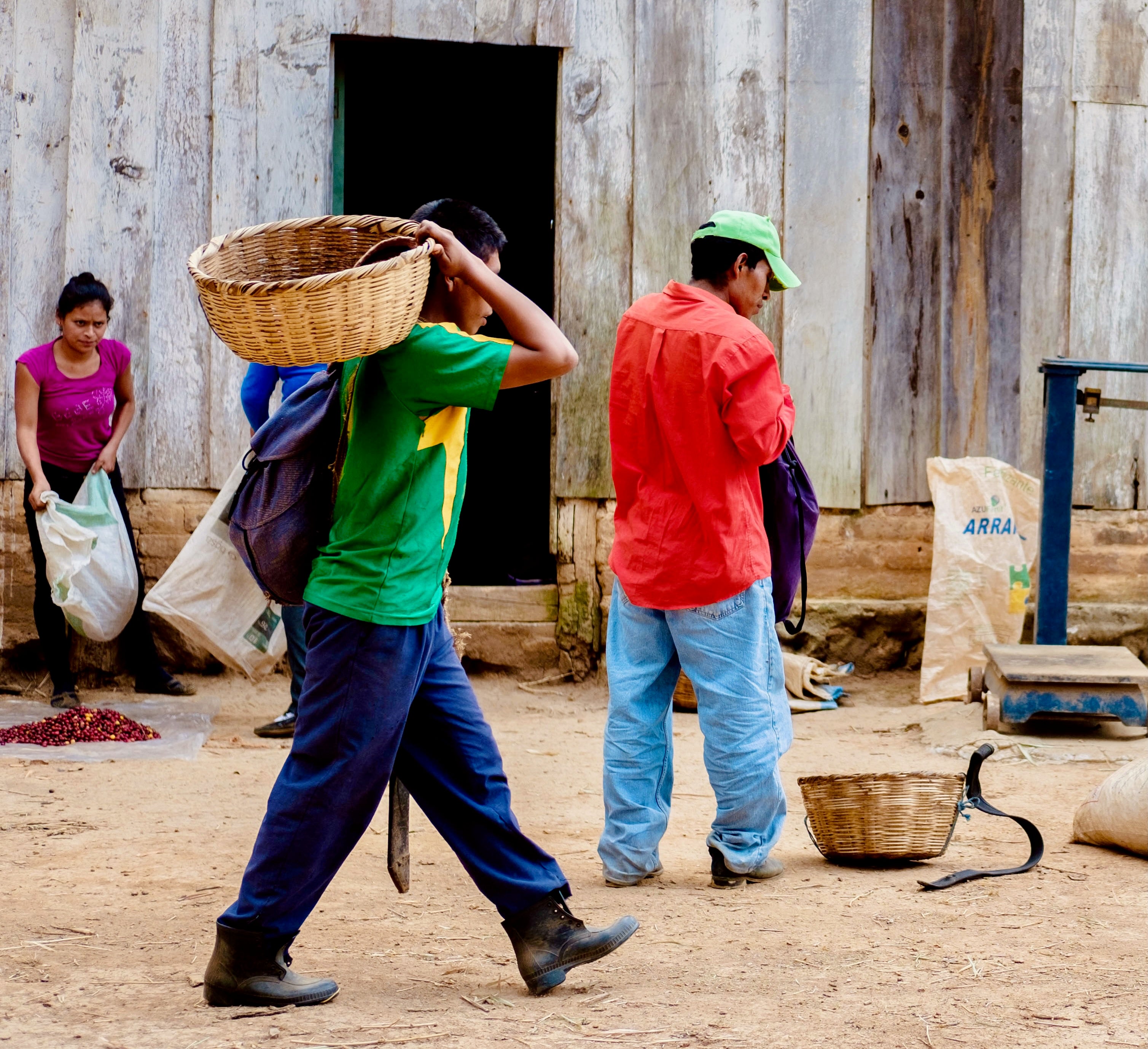Free UK shipping on all orders £18 and over
Clyde Steamer Espresso Blend
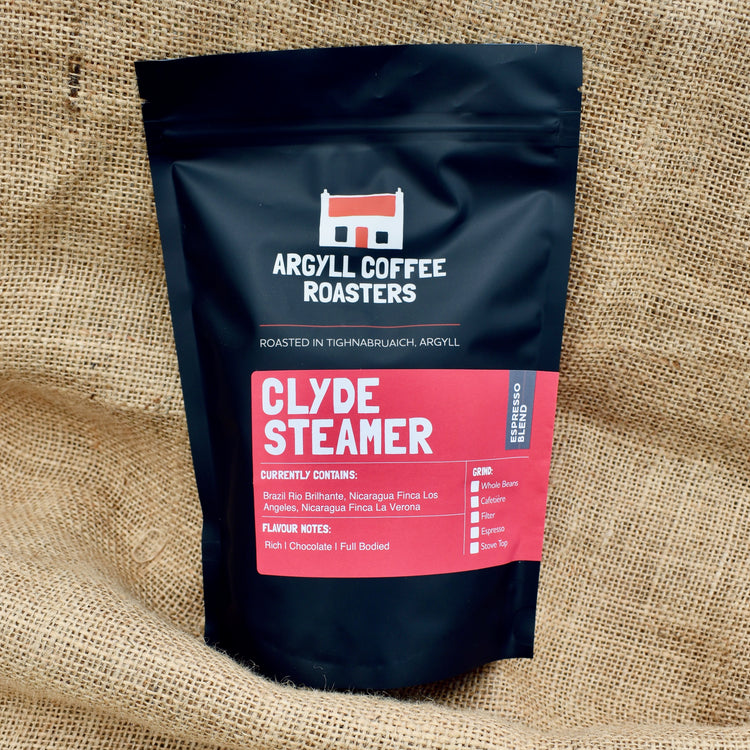
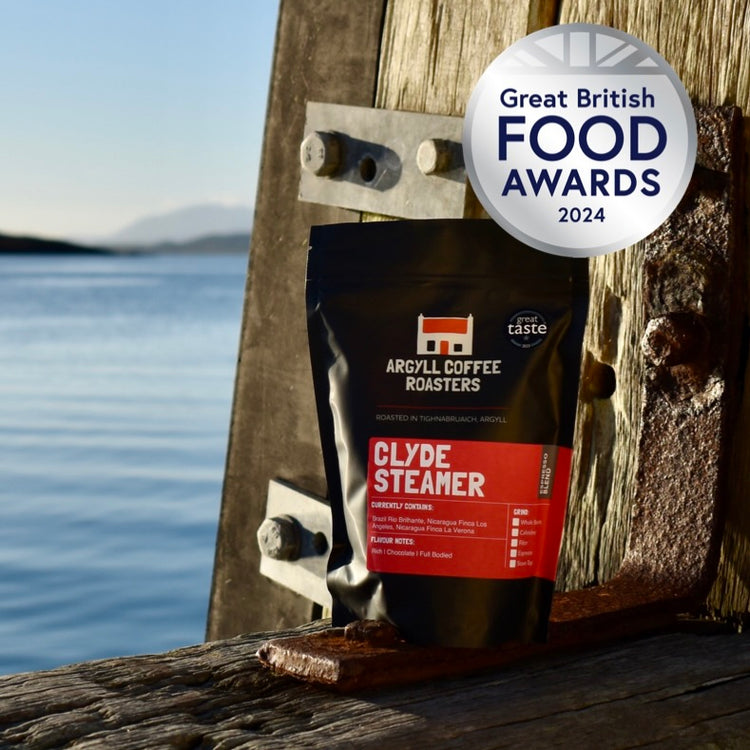
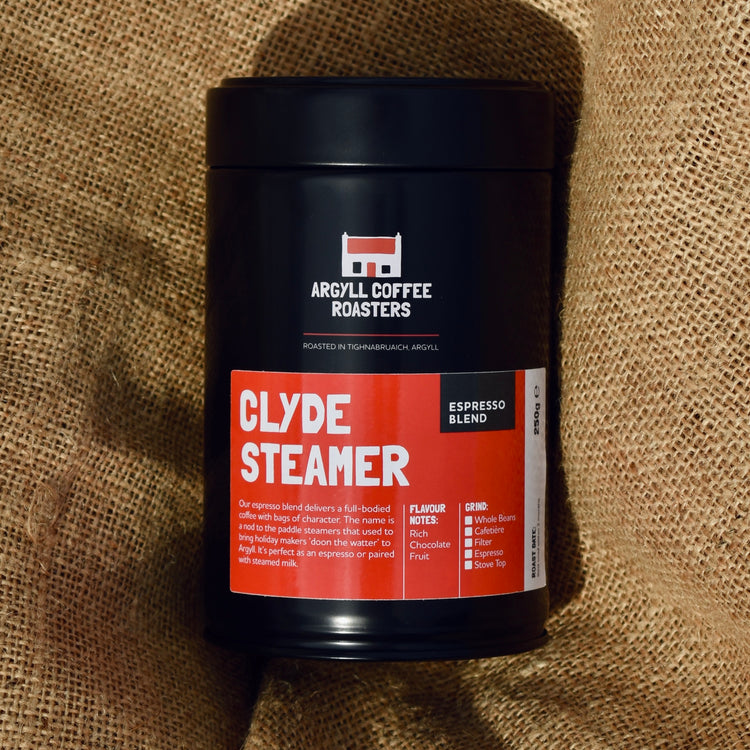
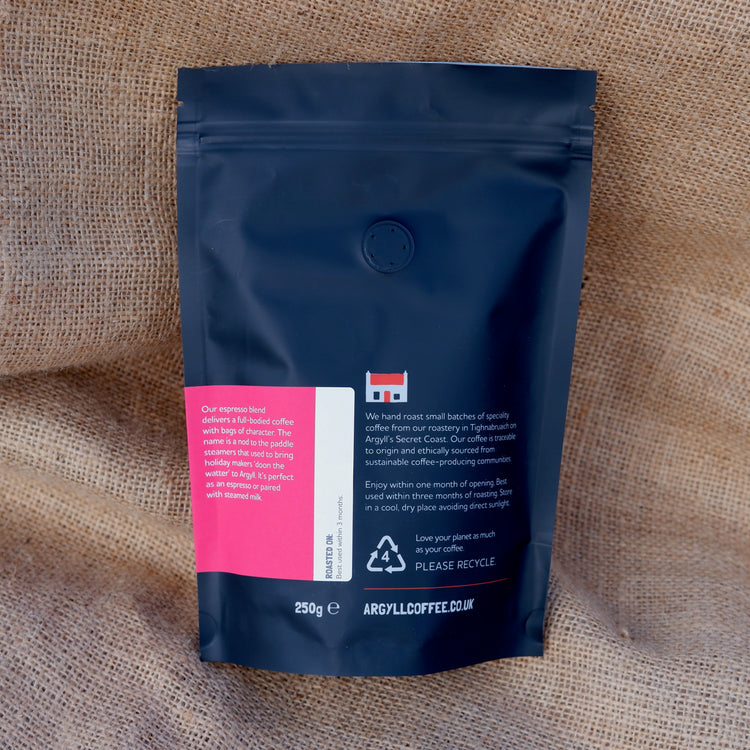


Clyde Steamer Espresso Blend
Our award-winning house espresso blend delivers a full-bodied coffee with bags of character. This blend is seasonally changing, but always delivers rich chocolate and nutty flavours.
Couldn't load pickup availability
Product variants:
Select grind: (Need help? View Grind guide)
Description
Brazil Fazenda Vila Boa
Farm:
Vila Boa
Processing:
Natural
Owner:
Monica Borges de Sousa
Region:
Campos da Vertentes, Sul de Minas
Varietal(s):
Yellow Bourbon
Altitude:
1,150 metres above sea level
Town:
Carmo da Mata
El Salvador Finca Carmen
Farm:
Carmen Estate
Processing:
Washed
Owner:
Alfaro family
Region:
Ahuachapán
Varietal(s):
Red Bourbon
Altitude:
1,300m
Town:
Apaneca-Ilamatepec
Brazil Barrinha Natural
Farm:
Barrinha
Processing:
Natural
Owner:
Costa family
Region:
Mogiana
Varietal(s):
Mundo Novo
Altitude:
850-1,100 metres above sea level
Town:
Barrinha

